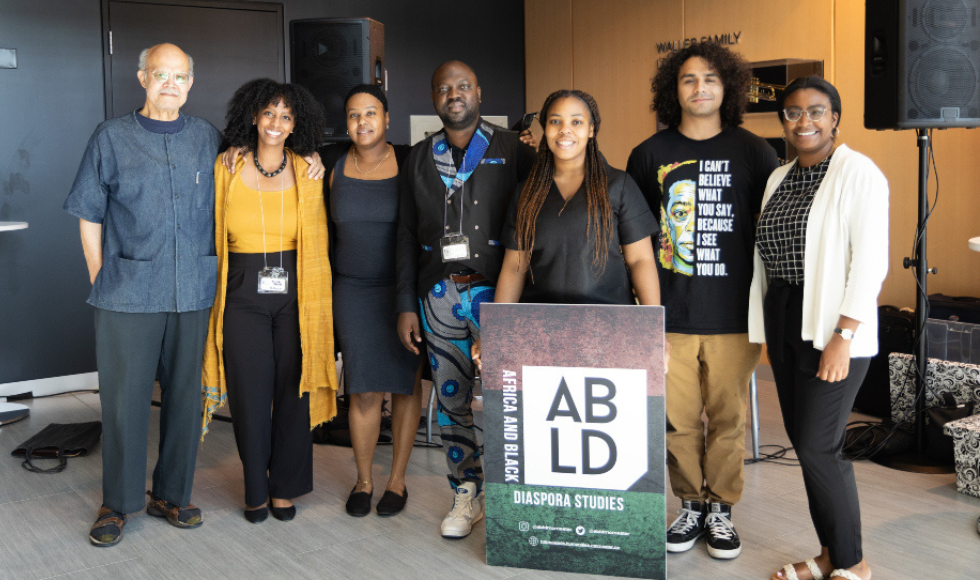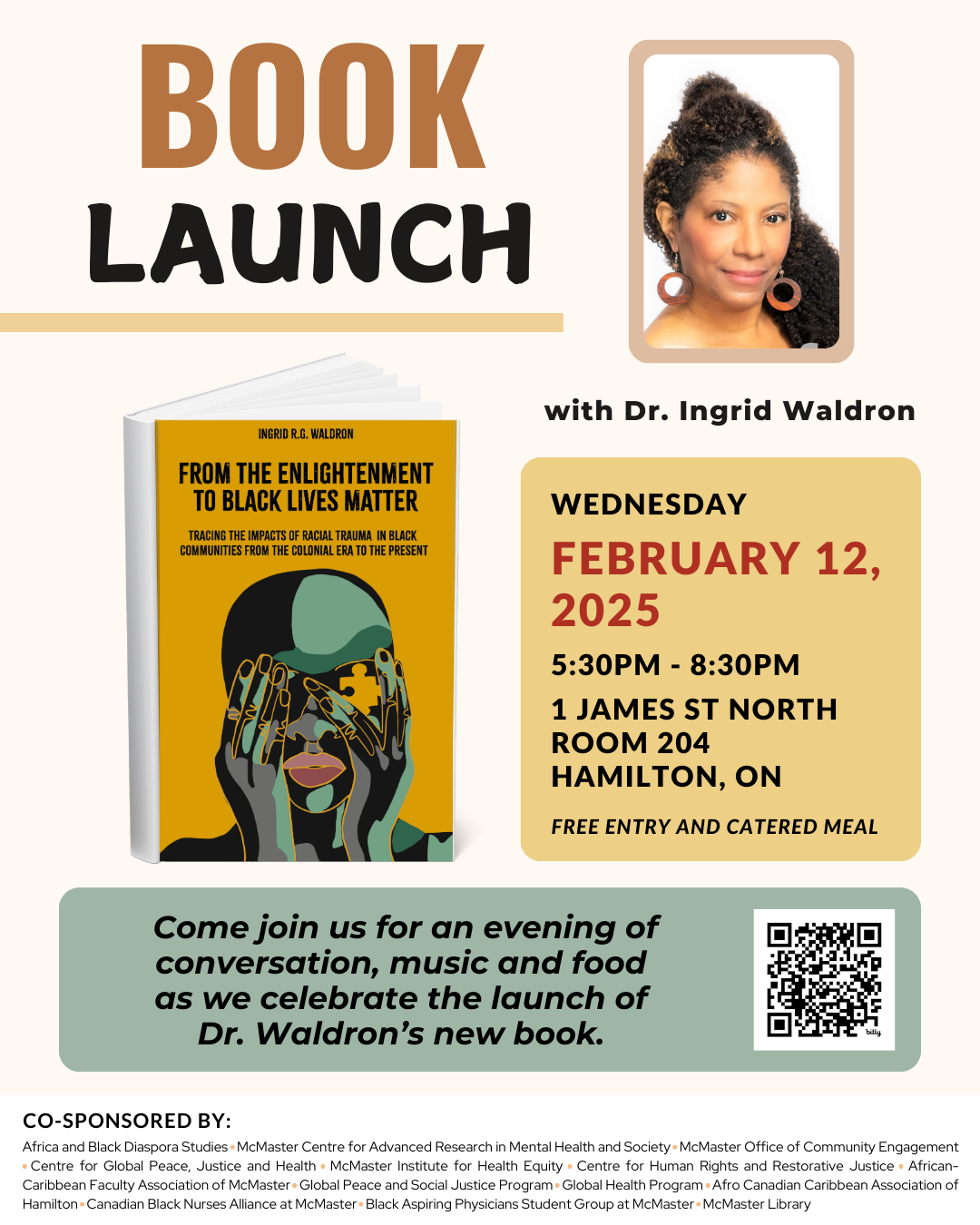Quick — name three iconic Black Canadians.
That probably isn’t as easy as it should be. That means it’s important to make more space for Black Canadian stories, says Alpha Abebe, an associate professor in the department of Communication Studies and Media Arts and the lead for Africa and Black Diaspora Studies (ABLD) at McMaster.
Black studies programs are limited but growing in number across universities in Canada — which is why Abebe, along with colleagues who work in Africa and Black Diaspora Studies, recently organized and hosted Black Futurities: (Re)Imagining Black Studies in Canada, a day-long conference on the development and future of Black studies across Canada. The conference was co-chaired by Abebe and Rhonda C. George — a post-doctoral research fellow with ABLD — and supported by the African-Caribbean Faculty Association of?McMaster (ACFAM).
“We’re at a pivotal point in Black studies in Canada, so we wanted this to be a broad, national conversation,” says Abebe. “This was the introduction of McMaster’s ABLD into the Black studies sphere in this country and we are looking forward to continuing to contribute meaningfully to ongoing conversations and academic community-building initiatives across Canada.”
Unlike traditional academic conferences, which focus on individual scholars and academic papers, Black Futurities was organized around a series of five panel discussions, moderated by McMaster scholars. More than 20 emerging scholars and graduate student panelists were invited to engage in spirited collaborative discussions with each other and the audience.
“Graduate students are often spectators in these spaces, but we’re talking about the future of Black studies — and they’re the future,” explains Abebe. “We wanted to centre emerging voices in the discussion, but also pay homage to established Black scholars and facilitate intergenerational dialogue.”

One of those established scholars was keynote speaker Abdul Alkalimat, a founder of Black studies in the United States, professor emeritus of African American Studies and Information Sciences at the University of Illinois at Urbana-Champaign, and author of The History of Black Studies and The Future of Black Studies, among many other works.
“Dr. Alkalimat provided a 360-degree view of building this field in the American context, and looked at how it was beginning to develop around the world,” says Abebe. “There is a very intimate relationship with the US when it comes to Black history, culture and studies. Our challenge in Canada is balancing the importance of acknowledging these linkages, without remaining in the shadow of what can become very US-centric narratives.
“This was an opportunity for an intergenerational and transnational conversation about how to build the field in Canada.”
Abebe points out that the conference, which was attended by more than 200 people, both in-person and virtually, is an important step in building the ecosystem and community at McMaster of those who are doing work in the Black studies sphere, and follows a successful series of seminars this year featuring faculty, postdoctoral fellows and others involved in the ABLD program.
Other key steps to building that community have been the Black Scholar cohort hiring initiative, which was spearheaded by ACFAM in 2020 and supported by the provost’s Strategic Excellence and Equity in Recruitment and Retention (STEER/R) program. Currently, plans and proposals are in the works to establish a cross-faculty Research Institute dedicated to interdisciplinary work in Africa and Black Diaspora studies.
“There hasn’t been a sustained focus on or resources for Black studies in Canada in large part because of the enduring legacy of anti-Black institutionalized racism right here at home. But there has been this momentum since 2020 with more Black people doing Black studies across institutions,” says Abebe.
“There are lots of questions still to answer: what are we doing here, how is it different and similar from what’s happening in the US, what are we working towards? There is a lot that is unique and innovative here, we just need more space and resources to explore, research and document.”




